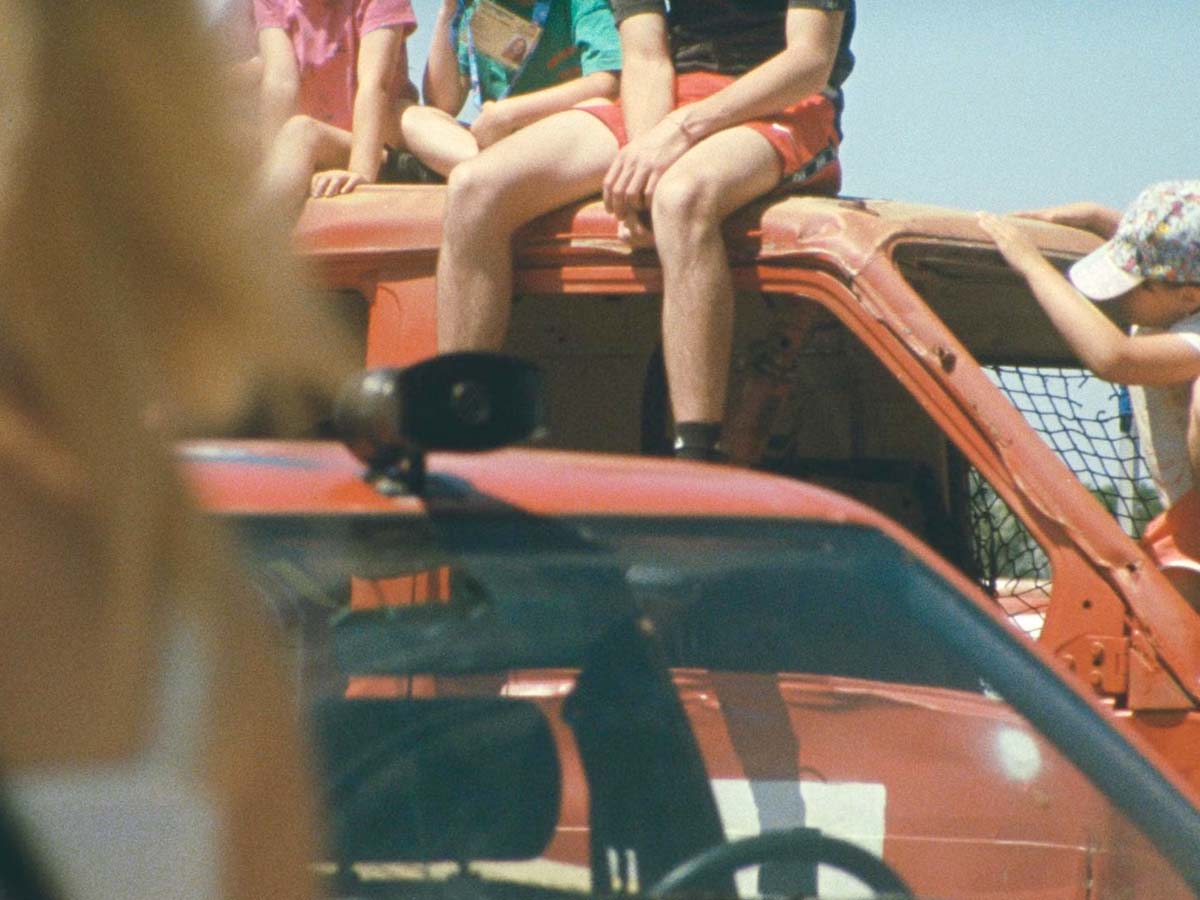
Crushed
Summer is the season for stock cars. In the background, filmmaker Camille Vigny recalls the violent summer of her 18th birthday. As she relates the story of the man who is slowly killing her, the cars become unrecognisable, like a group of smoking but heroic wrecks.
How is it that the same English word can denote both creation and destruction? To have a crush and to be crushed are very different in their semantic meaning yet share the same homonymous root. There is violence in every act of desire: just as there is something grabby about a lover’s gaze, there is also a certain cannibalistic impulse in every kiss. As if we silently agreed that our bodies become race tracks for the ever-accelerating laps of desire.
In her elegant and sincere short Crushed, Belgian filmmaker Camille Vigny narrates a fractured love story of her own past over images of stock car races and their aftermath. She metaphorises the violence we often enact on others (and upon ourselves) in gentle yet poignant juxtapositions between images of those thrilling death-machines, and her tenderly delivered confessionals. It’s summertime, and she is 18 years old. Jean is her first big love. He actualises her. They talk, watch films, smoke, and kiss. But he drinks. He hurts her. He de-actualises her.
Crushed persistently denies the viewer direct visual clues for the story at its heart, offering instead a spectacle of fast-driving cars, roaring engines, and battered metal carcasses. This interplay between the clandestine realms of domestic abuse and the aggressive speeding reveals a lot about Vigny’s approach to filmmaking. Crushed frequently uses high angles, still shots, and close-ups, with lingering pauses in a steady editing rhythm that reminds one of a beating heart. The film itself actually bears material witness to a cathartic transformation: its graininess soft to the touch, its colours dipped in yellow, like a bruise almost fully healed.
With Jean, the narrator says, she “began to appreciate the once insignificant curves of [her] body.” There is a sense of hope in her voice: exuberant and luxurious, almost when remembering the feeling of being touched. But there is also a trace of antagonism and an echo of anticipatory grief. Raw, defenseless, and soothing at the same time, Vigny’s voice is somehow more textured than the crumpled car hoods we see.
When you come alive in the hands of somebody else, you are also at their mercy; your exposed body is more than a skeleton made out of steel and iron with a thundering engine. Intimacy is dangerous because it’s always a transgression, even when invited and welcomed by the other. Guilt rides in the passenger seat. Self-blame clutches tighter than a seat belt.
It’s almost funny how spot-on a metaphor can be: the rows of crushed cars at the beginning of Vigny’s film have all their frontal parts destroyed while the back is still intact. In (first) love, too, we crash head-first.
Crushed celebrates its Belgian premiere at Film Fest Gent as part of the International Shorts Competition.

